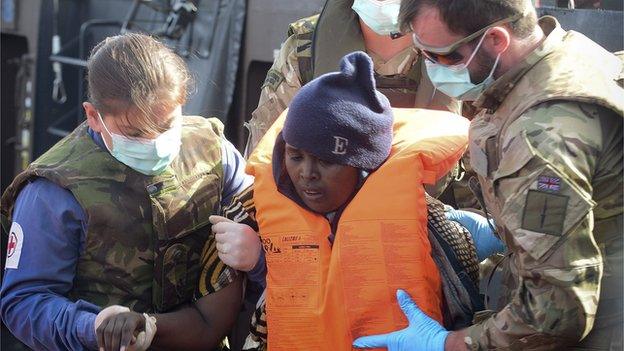Mediterranean migrant crisis: HMS Bulwark rescues hundreds
- Published
HMS Bulwark has rescued over 200 migrants in the Mediterranean Sea
A British warship has rescued hundreds of migrants from the Mediterranean, the Ministry of Defence has said.
HMS Bulwark brought more than 400 people to safety after they were found 40 miles from the Libyan coast in inflatable boats.
The European Commission has proposed a scheme to offer 20,000 refugees the right to resettle in the EU.
Meanwhile, Home Secretary Theresa May has suggested that some rescued migrants should be returned home.
The BBC defence correspondent Jonathan Beale said a further 150 migrants had been transferred to HMS Bulwark from an Italian coastguard vessel and the ship would now head to Sicily.
Defence Secretary Michael Fallon said the Royal Navy had rescued about 600 people so far this month.
'Invaluable asset'
The Ministry of Defence said HMS Bulwark had been alerted to four 30ft boats in potential distress, each carrying about 100 people including pregnant women and children.
Captain Nick Cooke Priest, commanding officer of HMS Bulwark, said people on the "precarious" boats were suffering from dehydration and injuries.
"The weather at the moment is extremely hot so my ship's company and I are very pleased that we were able to bring them to safety," he said.
To help combat the migrant crisis, the European Commission has proposed the new resettlement scheme, which will take place over the next two years.
By the end of May, it also plans to introduce a temporary mechanism for distributing thousands of migrants already in Europe among EU member states.
But Mrs May said offering resettlement regardless of circumstances to migrants rescued from the Mediterranean would encourage more to make "perilous journeys".
This was why the UK was not backing a resettlement quota plan, she said.
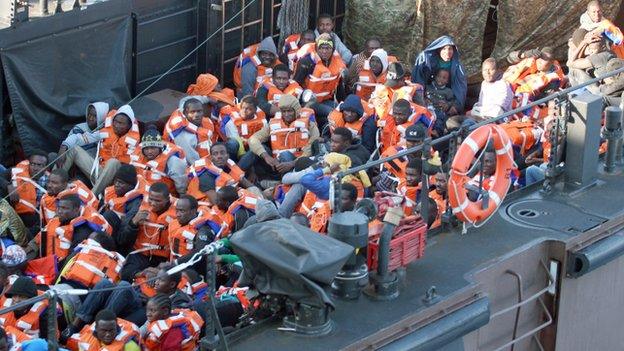
The British servicemen threw life jackets to those on the boats.
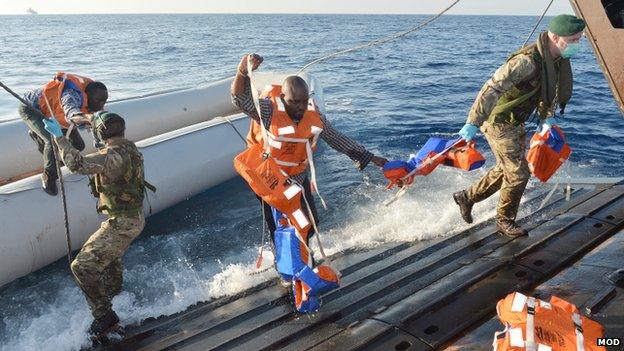
The four inflatable boats were carrying about 100 people each, the Ministry of Defence said
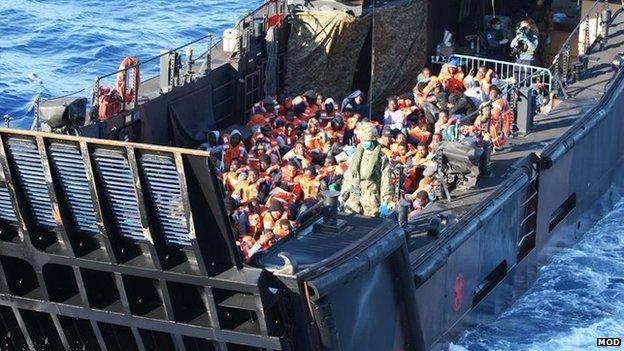
Hundreds of migrants have been taken aboard HMS Bulwark
Mr Fallon said HMS Bulwark had already proved to be an "invaluable asset in assisting with the Mediterranean migrant crisis".
"The ship is providing medical assistance, food, water and dry clothes to those in need and will transfer them safely to land as soon as possible," he said.
The UN estimates that 60,000 people have already tried to cross the Mediterranean from North Africa this year.
More than 1,800 migrants have died - a 20-fold increase on the same period in 2014.
France, Germany, Italy and some other countries have backed the quota proposal, but a majority of EU governments would have to agree for it to become law.
As things stand, the UK could decide to opt in to the scheme, but could not be compelled to join, as it has the power to opt out of justice and home affairs policies set by the EU - and asylum decisions are included in that opt-out.
The Home Office has instead urged the EU to focus on combating people traffickers.

- Published13 May 2015
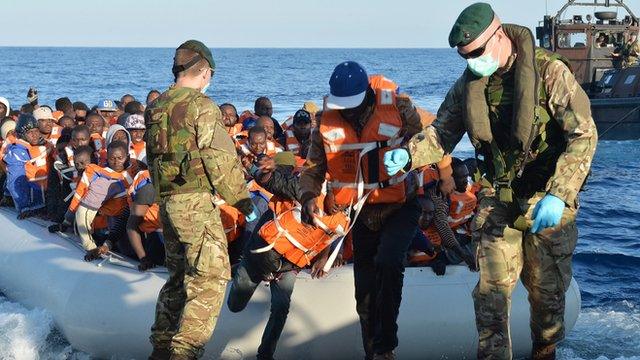
- Published13 May 2015
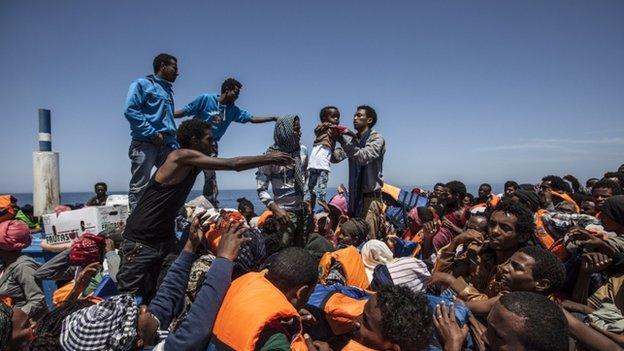
- Published13 May 2015
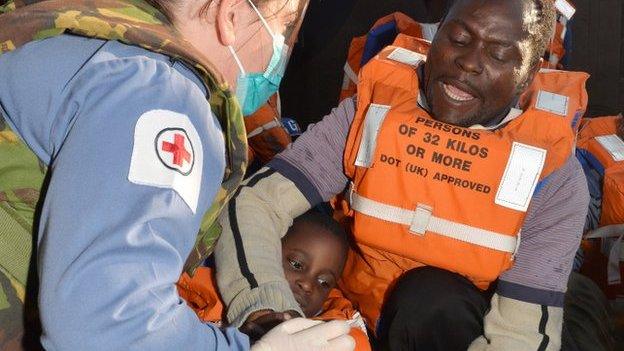
- Published13 May 2015
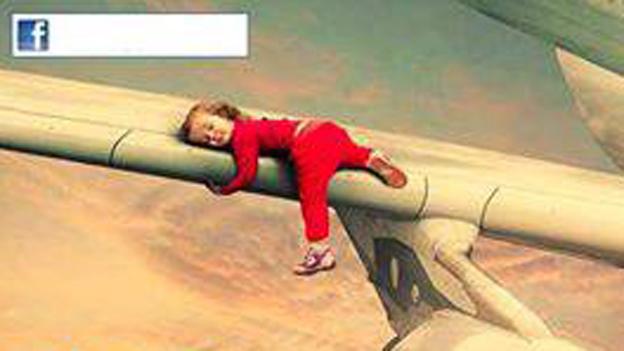
- Published12 May 2015
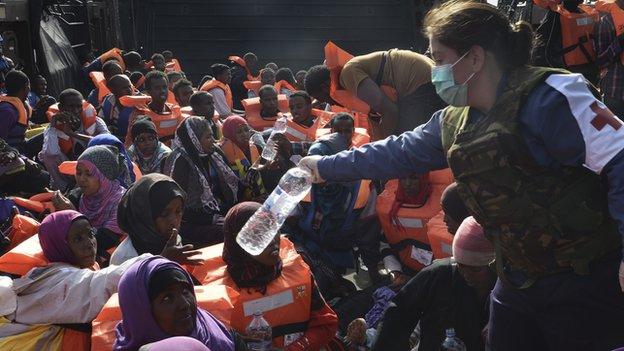
- Published13 May 2015
